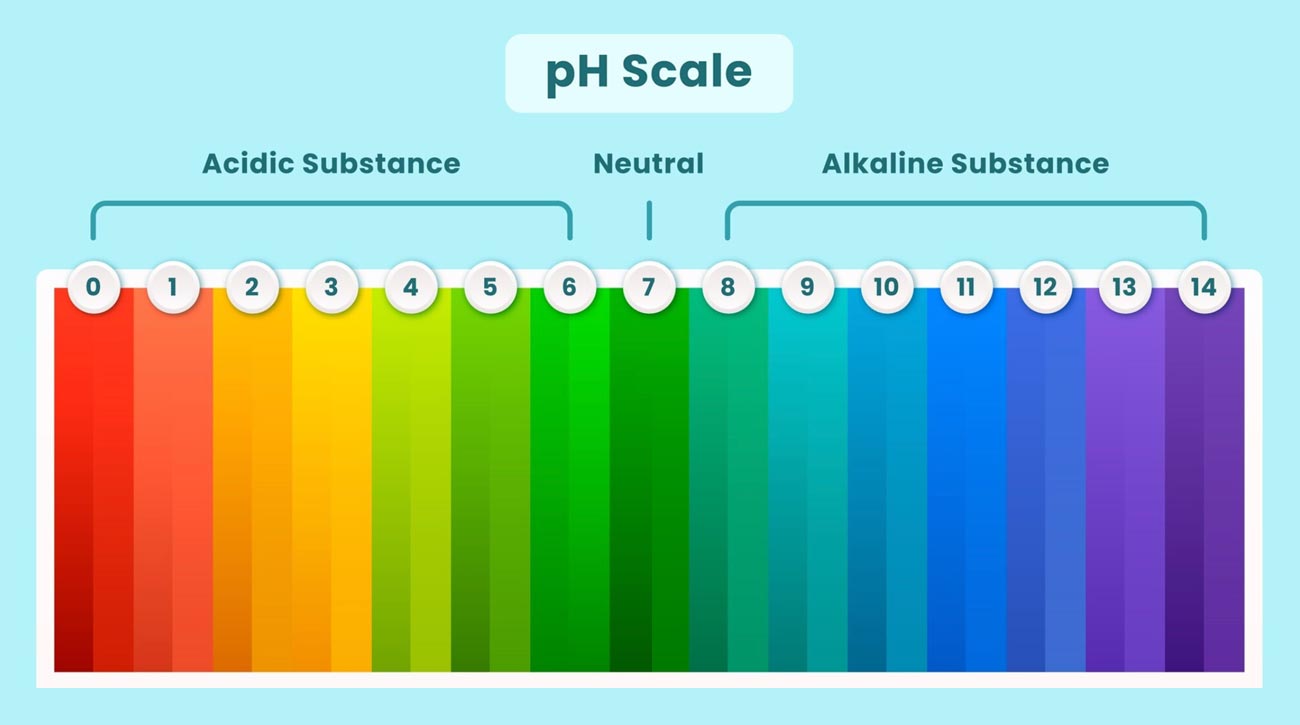Why Too Low a pH is a Problem
A lower urine pH (below 5.7) indicates that your urine is more acidic than it should be. That acidic environment increases the risk of uric acid stones, and it often accompanies low urine citrate, which also increases the risk of calcium oxalate stones.
What causes low urine pH?
High meat protein intake:
Diets high in red meat, poultry, and seafood (such as keto, paleo, and low-carb diets) can increase acid levels in the body and lower pH, a common cause of uric acid stones.
Dehydration:
If you’re not drinking enough water, your urine becomes more concentrated—and more acidic.
Metabolic syndrome or insulin resistance:
People with obesity, type 2 diabetes, or high blood pressure often have low pH due to how acid is handled by their kidneys.
Certain meds or supplements:
Diuretics, high-dose vitamin C, or meds that alter acid-base balance can lower urine pH.
Low citrate levels:
Acidic urine reduces the citrate in urine, one of the body’s natural preventers of stones. So low pH and low citrate often go hand-in-hand—creating the perfect storm for stone formation. Increase your intake of vegetables and fruits to boost citrate and pH levels naturally.
If your pH is low, perform a follow-up urine collection to determine if this adjustment has improved your citrate and pH levels. If not, your physician may consider potassium citrate or another alkalizer to help.
Why high pH is a problem
A high urine pH (above 6.3) makes your urine too alkaline, increasing the risk of calcium phosphate stones. These are harder to manage and often form in clusters. A high pH by itself is NOT a stone risk factor. If a high urine pH is accompanied by a low urine volume and high urine calcium, that is when your calcium phosphate stone risk increases.
What causes high pH?
Too many alkaline-forming foods:
Fruits and vegetables are great—but an overly plant-heavy diet without enough acid-producing foods can push your pH up too high. Many of you will simply have a higher urine pH, and we are unsure why. Seems to be something that happens in middle age.
Overuse of lemon water
I see this all the time. Patients are told to drink lemon water (often by the internet or even their doctor) to raise citrate, but no one checks their pH first. If your pH level is already high, lemons may exacerbate the issue.
Potassium citrate without follow-up testing:
Potassium citrate can help raise citrate and prevent calcium oxalate stones—but it also raises urine pH.
I’ve seen patients whose doctors prescribed potassium citrate without ever ordering a follow-up 24-hour urine. That’s risky.
Without rechecking:
- You don’t know if the dose is working
- You don’t know if the dose is too high and raising your pH into stone-forming territory
- You don’t even know if you needed it in the first place
This is one of the most common problems I see. It’s not about bad doctors—it’s about missing the whole picture. If it’s been a while since you have had 24-hour urine testing, please get it done!
Distal renal tubular acidosis (dRTA):
dRTA is a rare condition that causes urine to remain alkaline even when the body is acidic. These patients are always at risk for calcium phosphate stones. I will do a blog on this soon (again, this is very rare).
Medications or supplements:
Some medications (such as potassium citrate or sodium bicarbonate) and certain over-the-counter products that claim to lower stone risk can, however, increase the pH level if not properly monitored. Never take these OTC supplements unless your physician has said your urine collection results warrant their use.
Why Follow-Up Testing Matters
Whether you’re starting a new medication, making a diet change, or just trying to “be healthier,” you need to know what’s actually happening in your urine. That’s where the follow-up, 24-hour urine collection comes in.
Follow-up testing answers questions like:
- Is the treatment working?
- Are you solving one problem but creating another?
- Do we need to adjust the dose or change the direction?
If no one checks, you’re guessing—and guessing is how people wind up on the lemon water plus potassium citrate plus vegan diet equals phosphate stone express.
If your doctor hasn’t ordered a repeat 24-hour urine, ask for one. Or get help understanding your results—I offer urine consults here:
The Bottom Line
Urine pH isn’t about being high or low—it’s about being in the right range for you. What helps one stone former might hurt another.
That’s why I say: test, don’t guess.
Your friend,
Nurse Jill
P.S. Checking your pH with test strips throughout the day does not provide an accurate picture of your 24-hour urine pH. It must be done through a 24-hour collection.














Leave a Reply